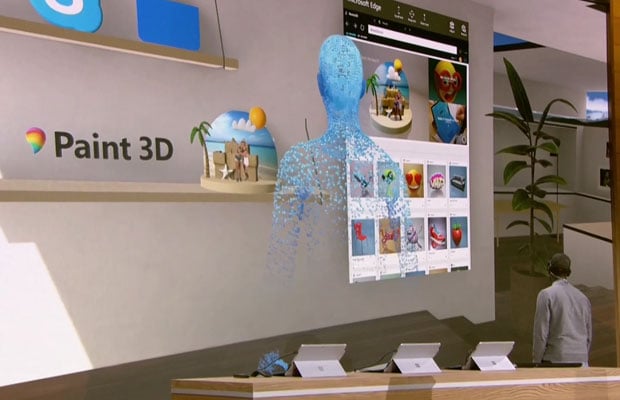Microsoft To Outline Plans For Windows 10 VR Headsets In December

Several years ago Microsoft decided to build hardware, a decision that was met with skepticism by analysts and even a bit of anger by some of its hardware partners (Acer was especially critical of Microsoft's strategy). It turned out to be a sound decision, one that jump started the 2-in-1 product category. You could argue that, to an extent, Microsoft disrupted the landscape (for the better), and it is getting ready to do it again with finally affordable VR headsets.
We're not talking about HoloLens, though Microsoft's investment in the augmented reality headset certainly steered the company to this point. What lies ahead are a series of VR headsets for Windows 10 manufactured by Microsoft's hardware partners and starting at $299. On top of the lower price tag (compared to the Oculus Rift and HTC Vive), you won't need a muscular PC to run them.
"The stuff is super expensive," HoloLens boss Alex Kipman told Polygon in an interview. "You need a $1,500 PC to get started and then something like a $500 Oculus device."
Actually, the Rift runs $599 while the Vive costs $799, though he overstated what you'd need to spend on a PC to run either headset. Whatever, the point remains that today's VR gaming solutions are cost prohibitive to many people, and that is something Microsoft is setting out to solve.

The primary way it is doing that is by baking holographic support into Windows 10, which is coming with the Windows 10 Creators Update next year. Tying into that is Microsoft's invitation to third-party hardware makers to build mixed-reality headsets powered by Windows Holographic and Windows 10. They've responded—Acer, Asus, Dell, HP, and Lenovo all plan to ship VR headsets capable of mixed reality next year.
Just as Microsoft built its Surface tablet to kick start the 2-in-1 boom, it is doing the same with VR, though it isn't clear if Microsoft will end up selling its own VR headset.
"The device we put on stage is a working device," Kipman added. "We announced this partnership at Computex and invited people in our ecosystem to participate. What you saw today was the result of the last six months."
There are a lot of questions that still need answered, such as what type of hardware is inside and what exactly these headsets will be capable of. Answers will presumably come at a pair of WinHEC events in December, one of which runs December 8-9 and the other from December 14-15.

